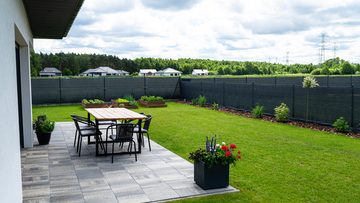In today’s fast-paced world, many of us find ourselves juggling countless responsibilities—work, family, social obligations, and personal goals. Amid this whirlwind, it is easy to place our well-being at the bottom of the list. Yet prioritizing both mental and physical health is not a luxury; it is essential for leading a balanced, fulfilling life.
Why mental and physical health matter equally
Mental and physical well-being are deeply interconnected. When you neglect your physical health by skimping on sleep, skipping meals, or avoiding exercise, it can increase stress levels, dampen your mood, and even contribute to anxiety or depression. Likewise, poor mental health can manifest physically through headaches, digestive issues, or a weakened immune system. This powerful mind-body link means that caring for one inevitably supports the other.
The mental health side: managing stress and emotions
Modern life can be stressful. Work deadlines, family dynamics, financial pressures, and even the constant buzz of social media can weigh heavily on your mind. Prioritizing your mental health means actively managing stress and carving out time to decompress. Practices like mindfulness, journaling, deep breathing exercises, or simply spending time in nature can significantly reduce anxiety and promote emotional balance.
Additionally, never underestimate the power of connection. Maintaining supportive relationships with friends, family, or community groups can provide a vital buffer against stress. Talking about your feelings, sharing laughter, and feeling understood are all crucial for mental resilience.
The physical side: honoring your body’s needs
Your body is your lifelong home. Taking care of it through proper nutrition, regular exercise, and adequate sleep is fundamental. Physical activity does not have to mean intense workouts; it could be daily walks, dancing, stretching, or gardening. Movement releases endorphins—natural mood lifters—and keeps your cardiovascular system, muscles, and joints healthy.
Equally important is rest. Chronic sleep deprivation can impair memory, decision-making, and immune function. Prioritizing a consistent sleep routine helps your body repair and your mind process the day’s events.
Creating a balanced approach
The key is to approach well-being holistically. Try to listen to your body and mind: What do they need today? It could be a quiet evening with a book, a vigorous hike to clear your head, or reaching out to a friend for a heart-to-heart conversation. Small, consistent efforts often lead to the most meaningful changes.
The aromas from essential oils like lavender, chamomile, and bergamot can positively impact the brain's limbic system, which is involved in emotions and memory, leading to a sense of calm and well-being.
The long-term payoff
When you prioritize your mental and physical well-being, you are not just avoiding burnout—you are laying the foundation for a more joyful, resilient life. You will find yourself better equipped to handle challenges, more present in your relationships, and more connected to your sense of purpose.
In the end, taking care of your mind and body is not selfish; it is a necessary act of respect for yourself. And by doing so, you can show up more fully for the people and responsibilities that matter most. A balanced, healthy life starts with this simple truth: you are worth the investment.




